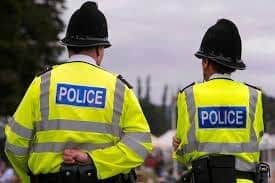New scheme to free up South Yorkshire police officers when dealing with mental health calls
and live on Freeview channel 276
The right care, right person initiative, developed by Humberside Police, will see healthcare professionals and other agencies respond to police calls for mental health help, rather than officers.
Dr Alan Billings, South Yorkshire’s police and crime commissioner, says the amount of time officers spend dealing with people who are having a mental health crisis or need psychological help ‘has grown considerably and remorselessly over the last few years’.
Advertisement
Hide AdAdvertisement
Hide AdHe added that the care of people in crisis has fallen to the police as ‘appropriate organisations and agencies were starved of resources during the times of austerity and also because ‘the police themselves did not at first realise just how far they were being drawn into these areas of non-crime activity’.


Future incidents will be responded to by the appropriate agency and not the police – staff who answer calls in the force control room have been trained to point callers to those other agencies.
Officers will still attend if someone is at risk of serious harm.
Dr Billings added that officers may spend the ‘best part of their shift’ responding to someone in crisis, waiting for an ambulance or taking them to A&E.
“Right Care, Right Person will be phased in,” he added.
Advertisement
Hide AdAdvertisement
Hide Ad“If it works, it could see non-crime demand reduce considerably, and that will free up officers to deal with the incidents they have been trained for and not the medical and social issues for which they have not.”
